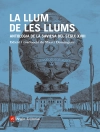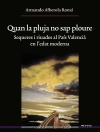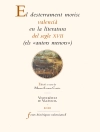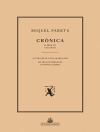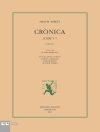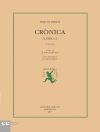This volume traces the evolution of Whig and Tory, Puritan and Anglican ideas across a tumultuous period of British history, from the mid-seventeenth century through to the Age of Enlightenment.
This volume, a tribute to Mark Goldie, traces the evolution of Whig and Tory, Puritan and Anglican ideas across a tumultuous period of British history, from the mid-seventeenth century through to the Age of Enlightenment. Mark Goldie, Fellow of Churchill College and Professor of Intellectual History at Cambridge University, is one of the most distinguished historians of later Stuart Britain of his generation and has written extensively about politics, religion and ideas in Britain from the Restoration through to the Hanoverian succession. Based on original research, the chapters collected here reflect the range of his scholarly interests: in Locke, Tory and Whig political thought, and Puritan, Anglican and Catholic political engagement, as well as the transformative impact of the Glorious Revolution. They examine events as well as ideas and deal not only with England but also with Scotland, France and the Atlantic world.
Politics, Religion and Ideas in Seventeenth- and Eighteenth-Century Britain will be of interest to later Stuart political and religious historians, Locke scholars and intellectual historians more generally.
JUSTIN CHAMPION is Professor of History at Royal Holloway, University of London.
JOHN COFFEY is Professor of Early Modern History at the University of Leicester.
TIM HARRIS is Professor of History at Brown University.
JOHN MARSHALL is Professor of History at John Hopkins University.
CONTRIBUTORS: Justin Champion, John Coffey, Conal Condren, Gabriel Glickman, Tim Harris, Sarah Irving-Stonebraker, Clare Jackson, Warren Johnston, Geoff Kemp, Dmitri Levitin, John Marshall, Jacqueline Rose, S.-J. Savonius-Wroth, Hannah Smith, Delphine Soulard
Spis treści
Introduction – Justin Champion and John Coffey and Tim Harris and John Marshall
Constitutional Royalism Re-considered: Myth or Reality? – Tim Harris
Teaching Political Thought in the Restoration Divinity Faculty: Avant-Garde Episcopacy, the Two Kingdoms, and Christian Liberty – Dmitri Levitin
Violence, Protest and Resistance: Marvell and the Experience of Dissent after 1670 – Justin Champion
Bulstrode Whitelocke and the Limits of Puritan Politics in Restoration England – Jacqueline Rose
The Assassination of Archbishop Sharp: Religious Violence and Martyrdom in Restoration Scotland – John Coffey
Compassing Allegiance: Sir George Mackenzie and Restoration Scottish Royalism – Clare Jackson
Corruption and Regeneration in the Political Imagination of John Locke – S.-J. Savonius-Wroth
Locke the Censor, Locke the Anti-Censor – Geoff Kemp
London, Locke, and 1690s Provisions for the Poor in Context: Beggars, Spinners, and Slaves – John Marshall
The Reception of Locke’s Politics: Locke in the République des Lettres – Delphine Soulard
Court Culture and Godly Monarchy: Henry Purcell and Sir Charles Sedley’s 1692 Birthday Ode for Mary II – Hannah Smith
Thanksgivings and the Signs of the Times: The Apocalypse in the Long Eighteenth Century – Warren Johnston
The 'Secret Reformation’ and the Origins of the Scottish Catholic Enlightenment – Gabriel Glickman
The Surprising Lineage of Useful Knowledge – Sarah Irving-Stonebraker
The Vicissitudes of Innovation: Confessional Politics, the State and Philosophy in Early Modern England – Conal Condren
Mark Goldie Bibliography
O autorze
WARREN JOHNSTON is Associate Professor in the Department of English and History at Algoma University, Sault Ste Marie, Ontario, Canada. He is the author of Revelation Restored: The Apocalypse in Later Seventeenth Century England (Boydell Press, 2011).


